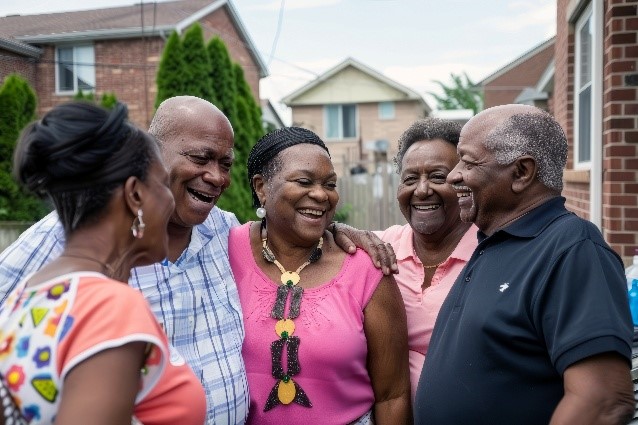When was the last time you had a real talk with your family about health? Not just the usual “eat better, drink water, and exercise” conversation, but a deep dive into the family’s health history. If kidney disease runs in your family, knowing your health history could literally save your life.
The Silent Threat of Kidney Disease
Kidney disease is often called a “silent killer” because it doesn’t always show symptoms until it has progressed significantly. This is especially concerning in the Black community, where the risk of kidney disease is four times higher than in white Americans. Conditions like high blood pressure, diabetes, and genetic factors all play a role in this increased risk.
But here’s the thing: knowledge is power. Understanding your family’s health history allows you to take proactive steps to protect your kidneys and overall well-being.

Why Black Family Health History Matters
Many diseases, including kidney disease, have a genetic component. If your parents, grandparents, or even aunts and uncles have had kidney disease, high blood pressure, or diabetes, you may be at a higher risk.
Talking with your family about their health history can help you:
- Understand your own risk level
- Get tested early and monitor kidney function
- Make lifestyle changes to prevent slow disease progression
Starting the Conversation
I get it—talking about health history isn’t always easy. Some family members may feel uncomfortable discussing medical issues. My family members rarely discuss health and wellbeing despite their importance. But here are a few ways to break the ice:
- Start with your own health – Share what you know about your own health first. It might encourage others to open up.
- Make it a family event – Holidays, reunions, or casual Sunday dinners can be great moments to have the conversation.
- Ask open-ended questions – Instead of “Do you have kidney disease?” try “Have you ever had any kidney or blood pressure issues?” Do we have family members who have diabetes?
- Take notes – Keep a record of family health conditions and share it with younger generations.
Prevention is Key
If you discover a family history of kidney disease, don’t panic—take action. Here’s what you can do to protect your kidneys:
- Get screened regularly – Early detection is crucial.
- Control blood pressure and blood sugar – These are major risk factors.
- Eat kidney-friendly foods – Reduce sodium, processed foods, and sugary drinks.
- Stay active – Regular exercise supports kidney health.
- Avoid smoking and limit alcohol – Both can harm kidney function.
Key Takeaway
Your Black family health history is a powerful tool in kidney disease prevention. Understanding your risk and taking proactive steps can make all the difference. So, start the conversation, stay informed, and take control of your health—because knowledge isn’t just power, it’s protection.
Have you talked to your family about health history? If not, there’s no better time than now!
Trusted Resources
CDC: About Family Health History https://www.cdc.gov/family-health-history/about/index.html
NSGC: Family Lines: How the Past Affects the Present for African-American Patients https://perspectives.nsgc.org/Article/family-lines-how-the-past-affects-the-present-for-african-american-patients
KFF: How Present-Day Health Disparities for Black People Are Linked to Past Policies and Events https://www.kff.org/racial-equity-and-health-policy/issue-brief/how-present-day-health-disparities-for-black-people-are-linked-to-past-policies-and-events/




